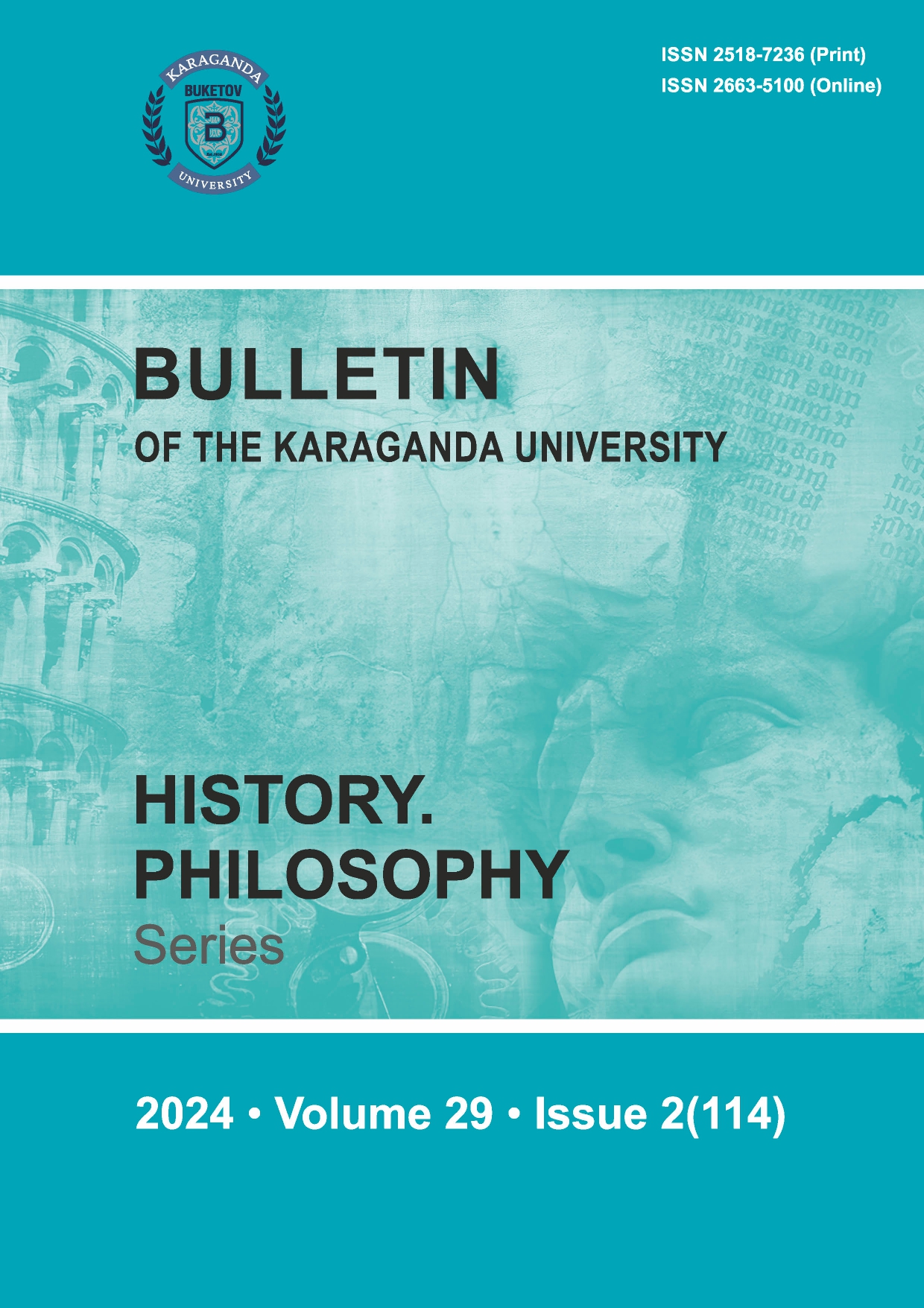Transformation of national identity in the context of globalization
DOI:
https://doi.org/10.31489/2024hph2/219-228Keywords:
globalization, reform, philosophy, transformation, national code, national values, national consciousness, language, cultureAbstract
In the article a comprehensive analysis of the intricate transformations occurring in human society during the era of globalization was presented. These changes, characterized by widespread integration globally, encompass socio-philosophical, political, and cultural dimensions. The evolving demands of globalization have brought about substantial shifts in the fields of culture, politics, religion, economy, and various scientific disciplines within the country. Given that transformations are occurring concurrently in multiple areas, pinpointing the root of these changes poses a considerable challenge. It necessitates efforts to anticipate the subsequent consequences of this multifaceted process. Over the next two decades, globalization is anticipated to rapidly advance worldwide. Widely acknowledged as a science addressing new, large-scale challenges for humanity, globalization is an ongoing process that is yet to reach its culmination. This process signifies a collective endeavor to formulate a unified human culture across all countries globally. Consequently, culture and national identity have swiftly succumbed to this transformative process, losing their distinctive and valuable original states. As a result, the scope of this cultural-social phenomenon extends beyond the confines of individual nations, peoples, cultures, civilizations, or continents; it manifests itself on a global scale. Hence, the pressing question emerges in the era of globalization: can we effectively preserve our country, culture, language, values, and national identity? Research has been conducted to delve into this challenging inquiry.




